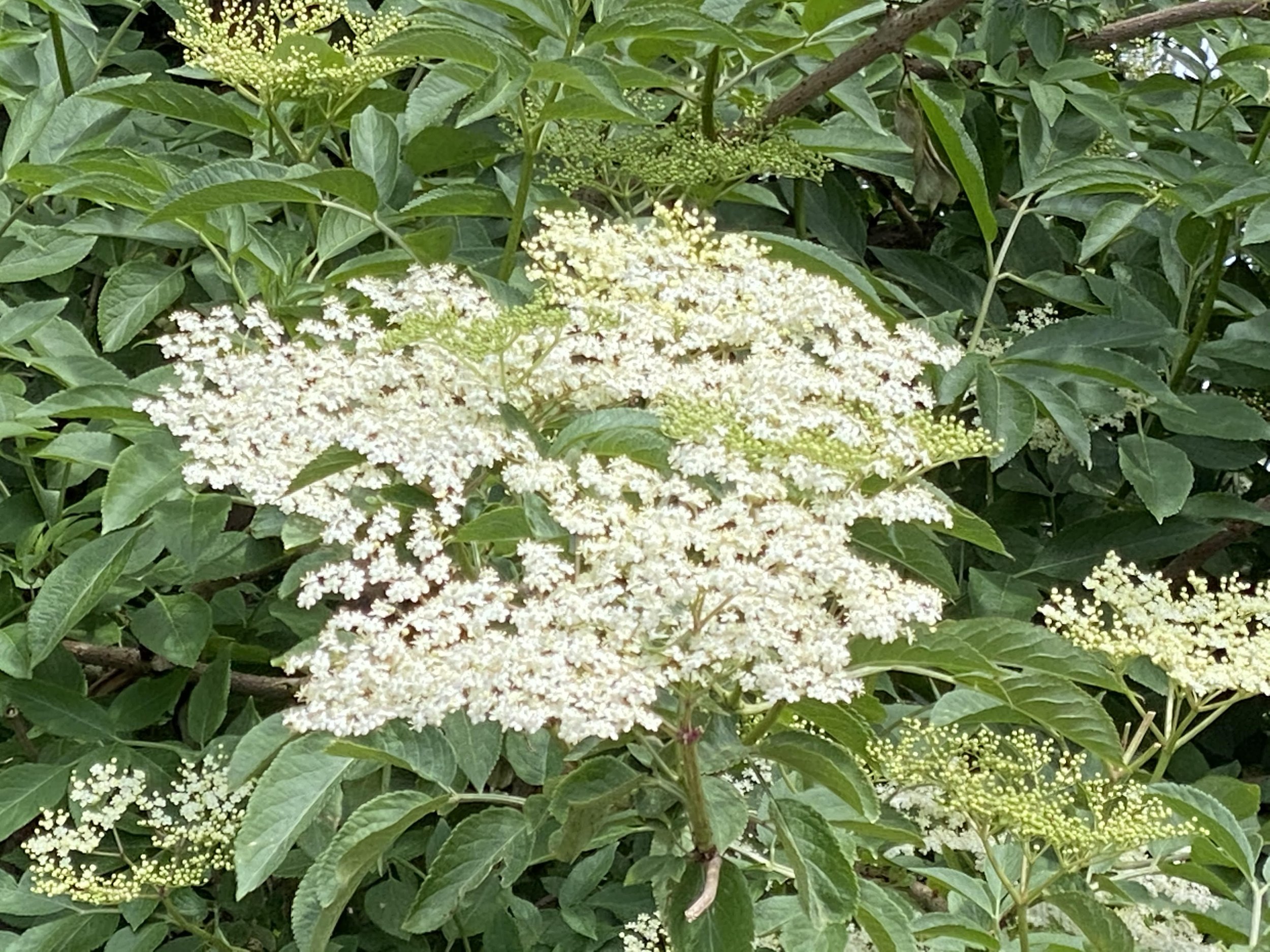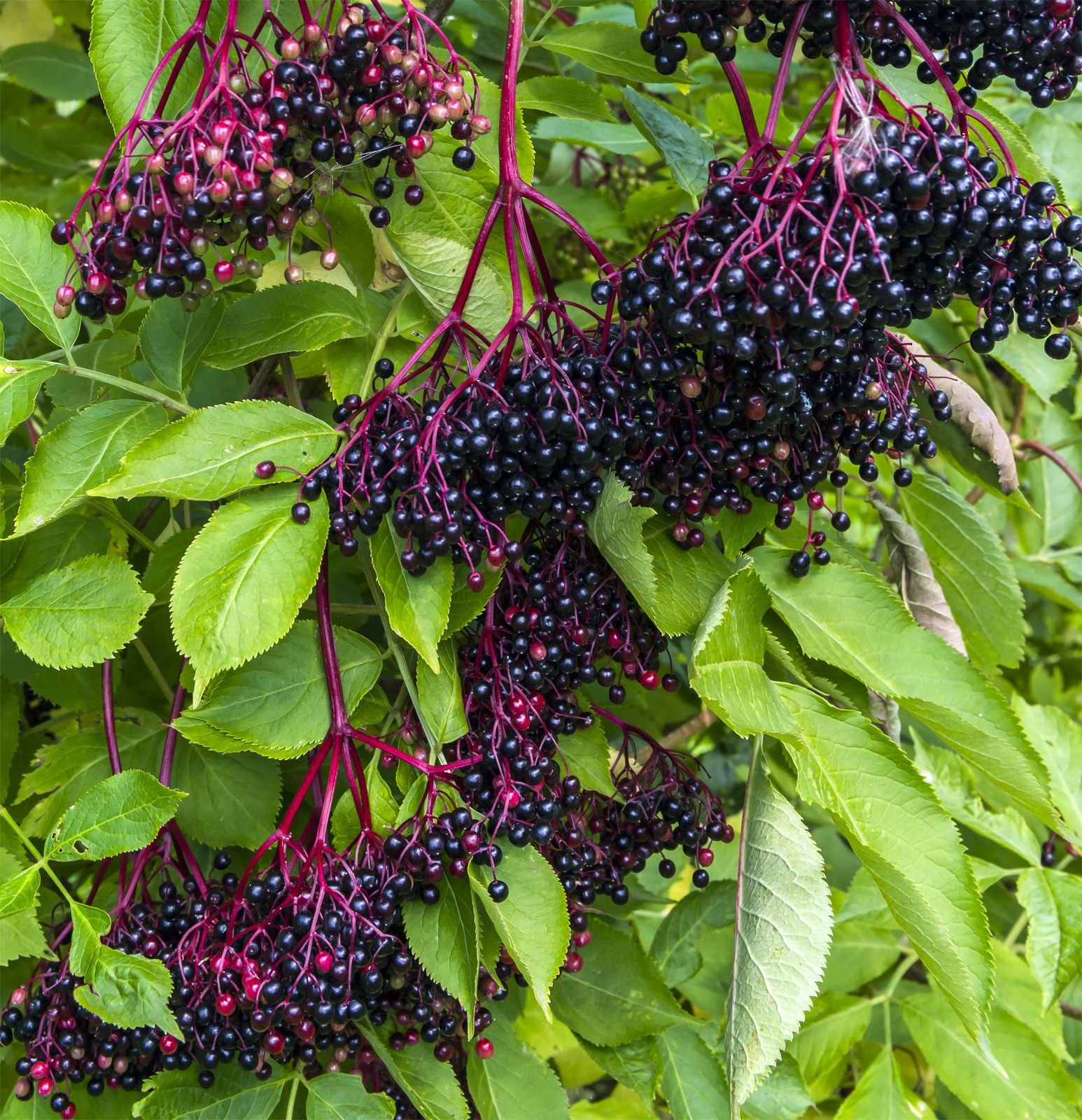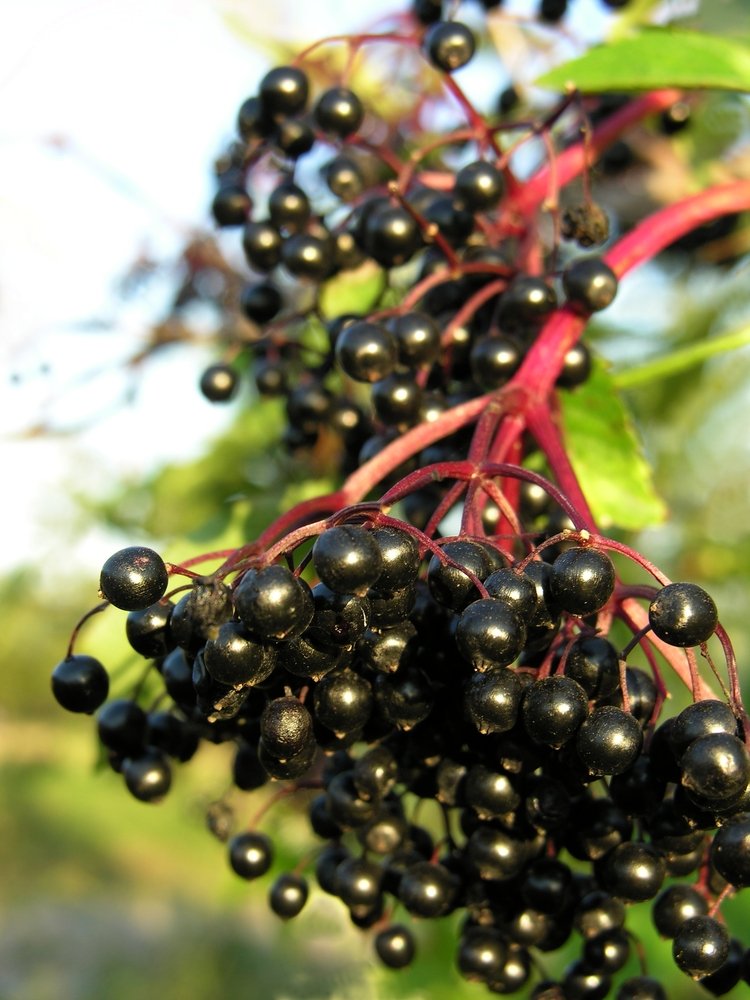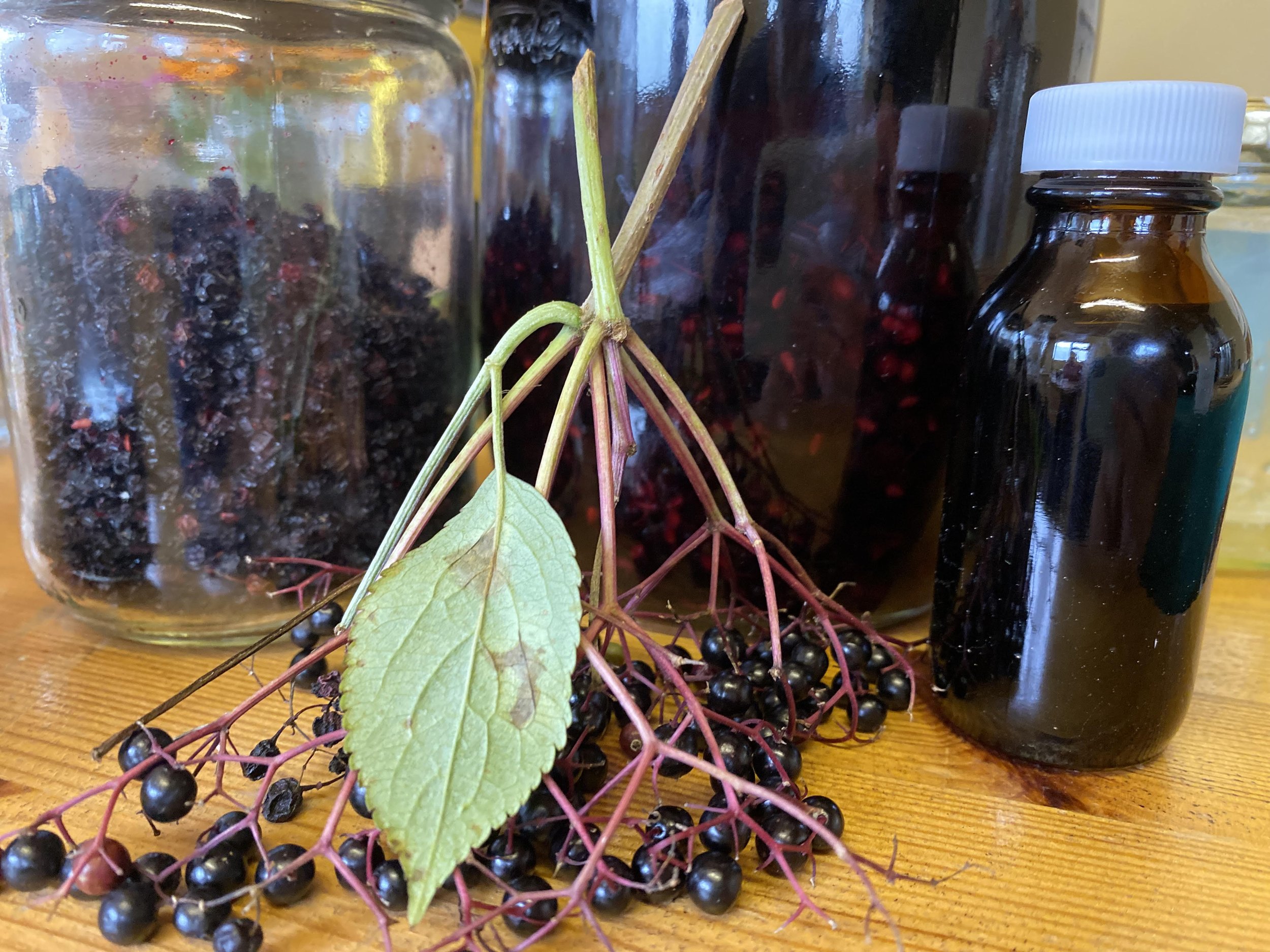Elder – healing plant of the year 2024
Not only in folk medicine, but also according to modern knowledge, the elder tree (Sambucus nigra) is a real winner. It is one of the most effective medicinal plants that grows in hedgerows and gardens all over the country. It is above all the flowers and later the ripe berries that can score points with their numerous valuable ingredients.
Elder strengthens the immune system, cleanses the blood, regulates intestinal activity, fights pain, reduces fever and helps with colds. Bioactive ingredients such as flavonoids or essential oils in the flowers are responsible for this. Ripe berries contain plenty of carotenoids, vitamins B and C and the blue-black dye sambucyanin.
Studies have shown that elderflower tea not only protects against harmless colds. It also activates the immune system against dangerous flu viruses. The red juice of the berries also strengthens the heart and circulation.
But be careful! All green parts of the plant - leaves, bark, unripe berries and flower stems - contain toxic sambunigrin. If this substance ends up on the plate, it can lead to vomiting, diarrhea and cramps. When the fruits are ripe, they are largely free of sambunigrin and can also be eaten raw, but the raw berries cause nausea in sensitive people. If you want to be on the safe side, process the berries into compote, juice, syrup or jelly. This means that you not only have delicious sweets in your pantry, but also a real secret weapon when you are catching a cold.
To ensure that enough shiny blue-black berries ripen on the trees, prudent wild fruit gardeners leave around two thirds of the white umbels on the bush when harvesting the flowers. As soon as star-shaped white flowers open in the coming weeks, elderberry fans are in collecting fever. Armed with baskets and scissors, they set off to harvest the deliciously scented flower plates.
Only fully blossomed umbels that are free of aphid colonies are allowed in the basket. Before processing, the flowers are carefully shaken out. The deliciously fragrant flowers should not be washed under any circumstances. They are used to make delicious elderberry cakes, syrup, vinegar or tea. Foodies with a taste for beauty add elderberry flowers to the almost cooked strawberry jam.





